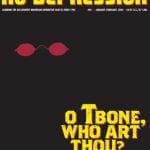Elliott Smith: 1969 to 2003
“I never really heard Nick Drake,” Elliott Smith said back in 1996, just before the frenzy of stardom glanced by. “I mean, I had heard a Nick Drake song after I’d recorded the last record, and I thought it was cool.”
Inevitably, however, Smith’s dark, delicate, revealing songs — and the timbre of his voice — reminded listeners of Drake. So, too, did his suicide — he stabbed himself on October 22 in Los Angeles, at age 34 — remind people of Drake’s brief life.
Smith left behind a half-dozen solo albums, most recently 2000’s Figure 8, as well a trio of albums with the band Heatmiser, and a good handful of singles and EPs. The song “Miss Misery” in Gus Van Sant’s film Good Will Hunting landed him an Academy Award nomination in 1998; he wore a tuxedo and appeared on national television, taking a bow between fellow nominees Celine Dion (who won) and Trisha Yearwood.
He was born as Steven Paul Smith in Omaha, Nebraska, mostly raised in Dallas, Texas (where he started making music in the basement), went to college in Amherst, Massachusetts, came to punk prominence in Portland, Oregon, drifted to and from New York, ended up in Los Angeles.
Smith and Neil Gust left Amherst for Portland in the early ’90s, just as grunge was erupting up the road in Seattle. The band they formed, Heatmiser, along with Sprinkler, Hazel, Pond, and Calamity Jane, was at the center of a small but flourishing music community.
In person, Smith proved surprisingly sturdy, given his diffident persona onstage and the quiet sadness of his songs. He was also very smart. His third album, Either/Or, took its name from the first major work by 19th-century Danish philosopher Soren Kierkegaard. Smith hadn’t chosen the title when we spoke, but he happened to be reading that book, along with a fair bit of the Nobel prize-winning German author Heinrich Boll.
“Dostoyevsky, he’s kind of my favorite,” Smith said. “I was reading a bunch of Kierkegaard…really brainy and stuff, but he’s really kind of a freaked-out guy, in a certain way, and that really sent me over the edge. I had to stop reading it for awhile. He’s really good, he’s trying to make sense out of this religious thing.”
Smith’s songs were always trying to make sense out of things. Some of them — and I’m thinking of an early favorite, “Needle In The Hay” — dealt directly with drug use. “I don’t try to make them depressing,” he said. “They make me feel better. It’s just that at some point I usually do find out what in the hell I’m talking about, and I’m usually not comfortable with just trying to make a song that works and the sounds that my mouth is making are right. That’s too easy. Anyone who’s written songs for awhile can do that. I don’t have a lot of respect for a lot of the stuff on the radio because the craft of it’s not that hard.”
Smith’s death, notes Seattle photographer Alice Wheeler, missed by twelve hours the anniversary of the suicide of influential Seattle punk poet Steven Jesse Bernstein, who also ended his life with a knife, early the morning of October 22, 1991.




